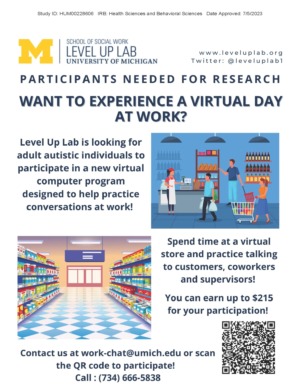 MORE INFO
MORE INFO
Due to the high volume of calls, we're experiencing a higher-than-usual backlog.
We appreciate your patience. In the meantime, please refer to our Resource Directory, Special Education Legal Library, or Insurance Portal as needed on our website while you're waiting
Most of today’s research focuses on the causes of ASD. Though this may be invaluable to future generations, people living with ASD now are in dire need of effective behavioral and neurodevelopmental therapies- as well as innovative education and vocational programs – to prepare them to be independent and productive members of our society.
Investments in autism spectrum disorder (ASD) research, guided by the Interagency Autism Coordinating Committee (IACC), have focused disproportionately on etiology over a well-established stakeholder priority area: research to improve accessibility and quality of community-based services.
Approximately 5% of total funds were allocated to services research. This investment has remained relatively stable across time and lacked diversity across domains (e.g., area of focus, ages sampled, implementation strategies used). While advancements were observed, including increased prevalence of projects focused on adult samples and on dissemination/implementation and prevention areas, greater investment in service research is critically needed.
The Centers for Disease Control and Prevention (CDC)’s Autism and Developmental Disabilities Monitoring (ADDM) Network now estimates that one in 31 children in the US have been identified with autism spectrum disorder (ASD; Shaw et al., 2025.) Given the dramatic increase in ASD prevalence over the previous several decades, considerable public and private resources have been allocated to autism research. Regrettably a disproportionate amount is dedicated to supporting people who need services now.
Why participate in research?
WAA promotes research that supports children and adults thriving in their own communities. It is important to note that we do not endorse or promote any specific research. We are solely providing a platform to inform the community. By participating in research, you are helping to inform future services and treatments. Research is voluntary, and you have the decision to participate or not participate. When considering a study for participation, please note research studies should be able to provide either their abstract, or scientific proposal and details of the proposal, including what scientific journals they are submitting their research to. You can learn about different research opportunities for children and adults with intellectual and developmental disabilities below!
~~~~~~~~~~~~~~~~~~~~~~~~~~~~
RUBI: Adult Focus Group Information at University of Washington –RUBIA Flier 11-8-24: Are you an autistic adult or parent/caregiver of an autistic adult?
If so, you may qualify for a research study! We are testing a new intervention, called the RUBI Program for Autistic Adults. We are looking for: Autistic adults and their caregivers who currently live together and may experience behavioral challenges that impact daily routines, safety, self–care, and/or quality of life
Participation involves: Participating in intervention sessions. Completing study measures at five timepoints over 20 weeks. You will receive up to $215 each for your time participating.
Level Up Lab, University of Michigan have developed a gamified computer program called Work Chat; Looking for adult autistic individuals who are able to read at or above 3.5 grade level to participate in a new virtual computer program designed to help practice conversations at work! You can earn up to $215 for your participation. Work Chat is designed to be a typical workday experience in a virtual gaming world to practice soft skills with customers, coworkers, and supervisors. Contact [email protected] or scan the QR code in flye to participate!

Help Pilot ACT SMART Decision-Making Tool (ages up to 25)
University of Washington: Redesign of Dialectical Behavior Therapy for young people on the autism spectrum
University of Oregon: Supporting Social Needs of Adults with ID
SPARK: Autism Study at Seattle Children’s Hospital
University of Texas at Austin School of Nursing: Sibling Caretakers of Adults with IDD
Georgia Tech Student Centered Transition Planning Study for Young Adults w/ASD